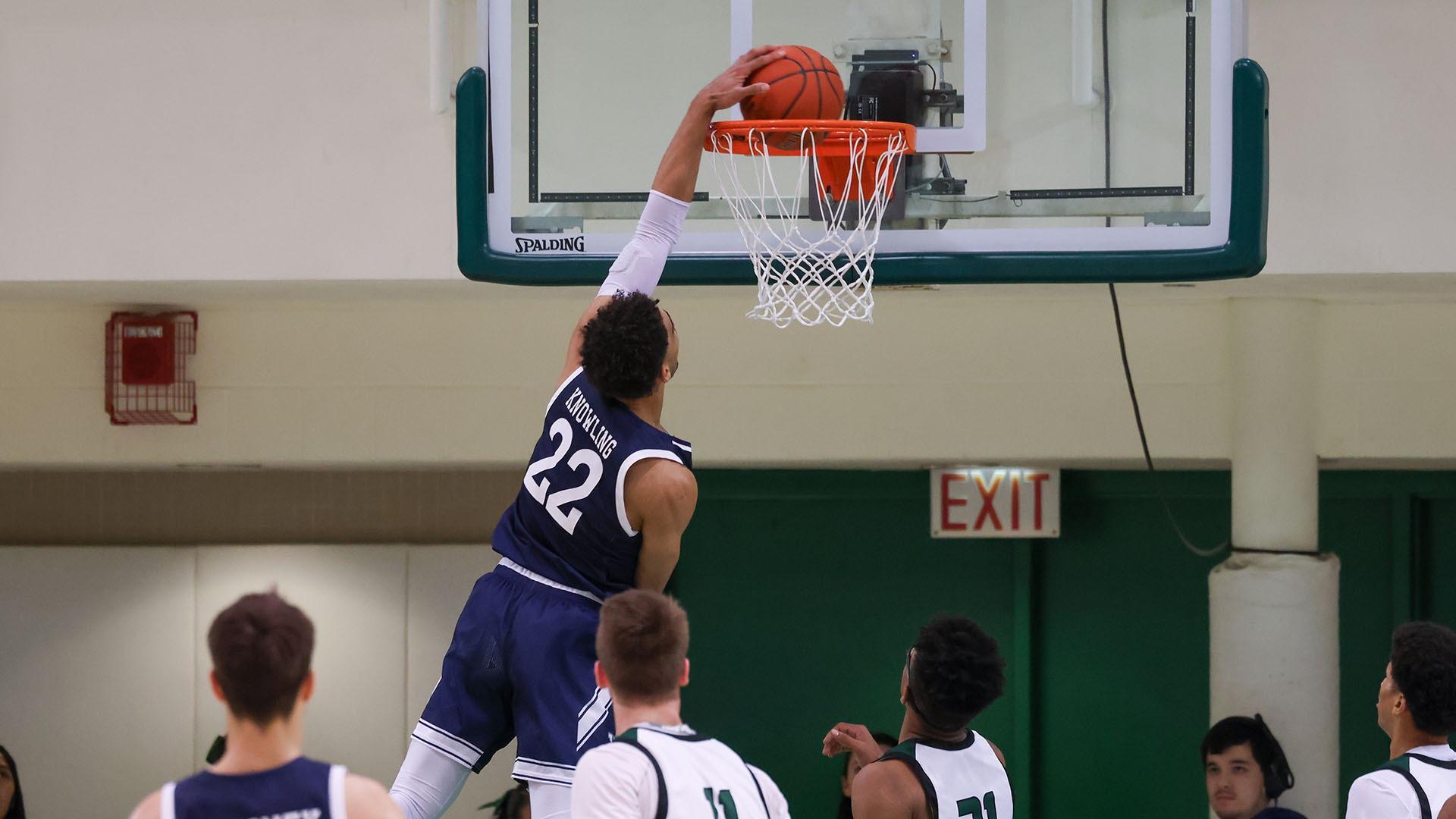The Rematch: Yale, Princeton to face off in Ivy showdown
The Bulldogs host the Tigers in Payne Whitney Friday night, their first matchup since Princeton knocked Yale’s men’s basketball team out of the Ivy Tournament at the end of last season.

Yale Athletics
Ten months ago, Princeton players hoisted the Ivy League trophy as Yale walked back to their buses, their NCAA tournament hopes shattered. On Friday, the men’s basketball teams face off again.
For the Bulldogs, the matchup is more than a chance for vengeance. Both Yale (13–6, 4–0 Ivy) and Princeton (15–2, 3–1 Ivy) are once again conference frontrunners and could very likely face each other in the Ivy Tournament Finals for the third consecutive season.
“There’s no extra motivation,” wrote James Jones, head coach of the Yale team, ahead of the matchup. “Winning each game and another Ivy Championship is motivation enough.”
On paper, Princeton would appear the more formidable team. However, ahead of Friday night, it’s the Bulldogs who enter with momentum. Jones’s squad has hit their stride after a slow start, winning eight of their last nine games and riding a six-game winning streak. In each of their four Ivy League matchups, they’ve won by a double-digit margin.
The Tigers began the season hotter than any team in the nation, winning their first nine games, and after the beginning of conference play sat at 12-1. But, a closer-than-expected win against Columbia and a 15-point blowout loss to Cornell on Saturday have blemished a once spotless resume.
Still, Princeton will challenge Yale, particularly on defense. Even on their home court, the Elis will have to bring their best to come away with the win.
Tiger offense vs Bulldog defense
Yale’s dominance over the first four games of Ivy play has been, in large part, due to its reinvigorated defense. As a team, the Bulldogs are allowing fewer offensive rebounds and making it harder for opposing teams to find open shots.
The Princeton offense, though — ranking 31st in the country according to Ken Pomeroy offensive efficiency ratings — will be Yale’s biggest test yet. Their offense thrives on quick ball movement, constant motion and dangerous outside shooting. Almost 40 percent of the Tigers’ total points come from three-pointers, which ranks 19th highest in the country.
“Princeton’s offense has been at its best this season when they’ve been able to make individual plays, and from that draw help and kick out for open 3’s,” Jones wrote. “We have to contain the ball, and contest the 3 point line.”
Yale struggled to contest the three-point line against Princeton last year, allowing them to hit 32 of 76 threes — 42.1 percent — across three separate matchups.
The Elis have struggled to defend the long ball at times this season, allowing over 40 percent from three in losses to Weber State, Rhode Island and Kansas. Since the start of Ivy play, though, Yale has brought its opponents’ three-point percentage down to 29.7 percent, from 34.5 percent on the season as a whole.
They’ll need to be stingy on the perimeter to keep the Tigers in their cage on Friday night.
Unlocking Mahoney and Poulakidas
Yale’s defining feature on offense is its versatility. With four of its five starters averaging more than 10 points per game, and guard August Mahoney ’24, 9.2ppg, not far behind, the Bulldogs are a tricky offense to prepare against because they can score in a variety of ways. This season, five different Yale players have recorded over a 20-point performance.
But one thing is for certain: Yale’s offense is far more dangerous when its sharpshooting guard duo, Mahoney and John Poulakidas ’25, are able to find open shots.
The Bulldogs have an average point differential of 14.2 in games where the two combine for more than five made threes.
Unlocking space for Mahoney and Poulakidas to shoot is key for Yale against stronger competition like Princeton, who have the personnel to stifle the Bulldogs’ other primary scoring threats like forward Danny Wolf ’26 and guard Bez Mbeng ’25.
Matchups to watch
Mbeng, the reigning Ivy League Defensive Player of the Year, will have a tough task ahead of him in Princeton point guard Xaivian Lee.
The Tigers offense runs through Lee, a sophomore who leads the league in scoring with 17.7 points per game and has multiple 30-point performances on the season.
Another matchup to watch will be Yale’s Tom Wolf against Princeton’s Caden Pierce. Pierce, a 6’7” sophomore, averages 14.6 ppg and 9.4 rebounds, second only in the Ivy League to Wolf, at 9.6 rebounds. Wolf will have a key role in keeping Pierce and the Tigers off the offensive boards and limiting opportunities for second-chance points.
Winning these matchups will be key to Yale’s success Friday night. And pleasing the home crowd, which is likely to be sold out for “white-out night.”
Tip-off will be at 7 p.m. in John J. Lee Amphitheater.







